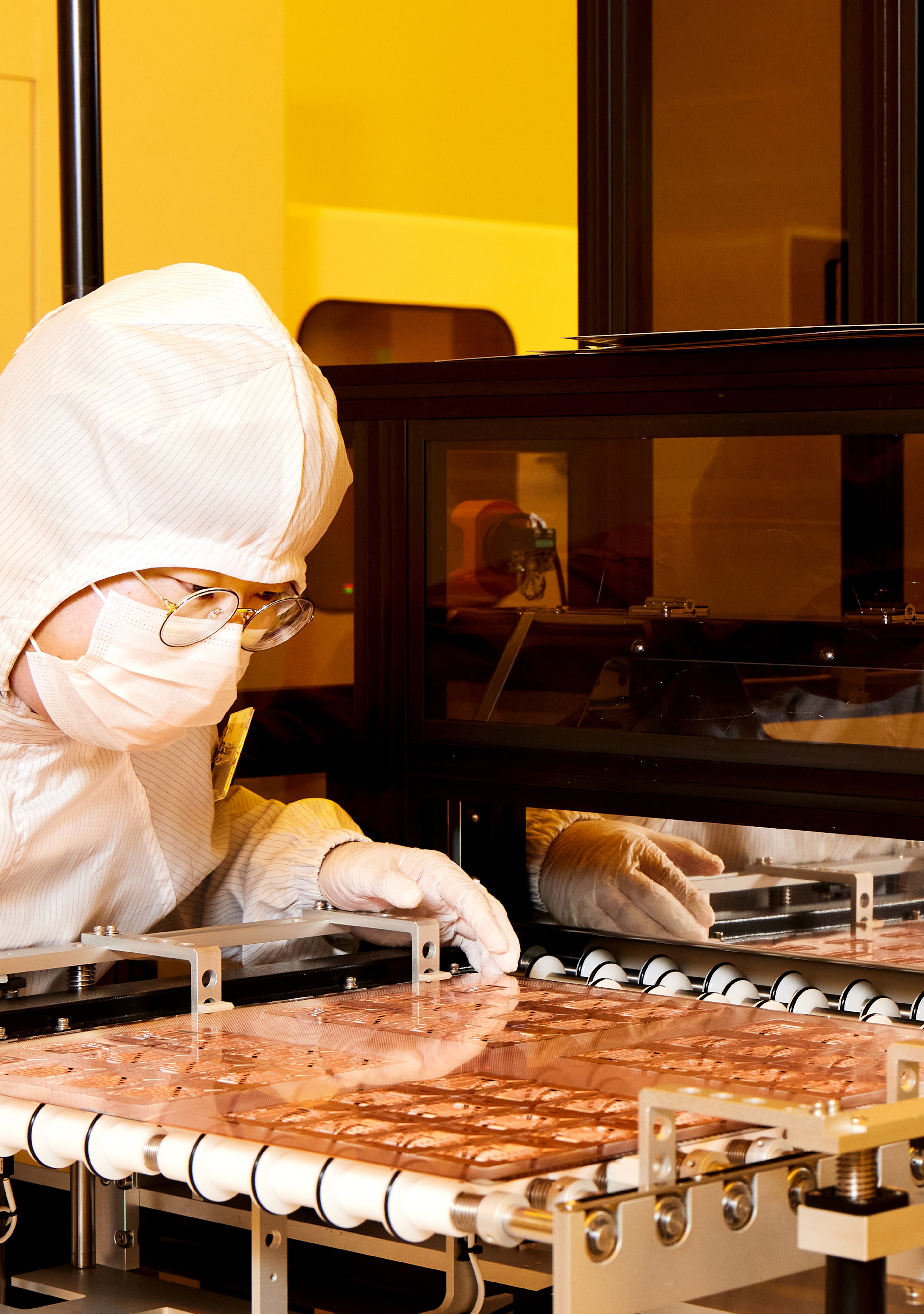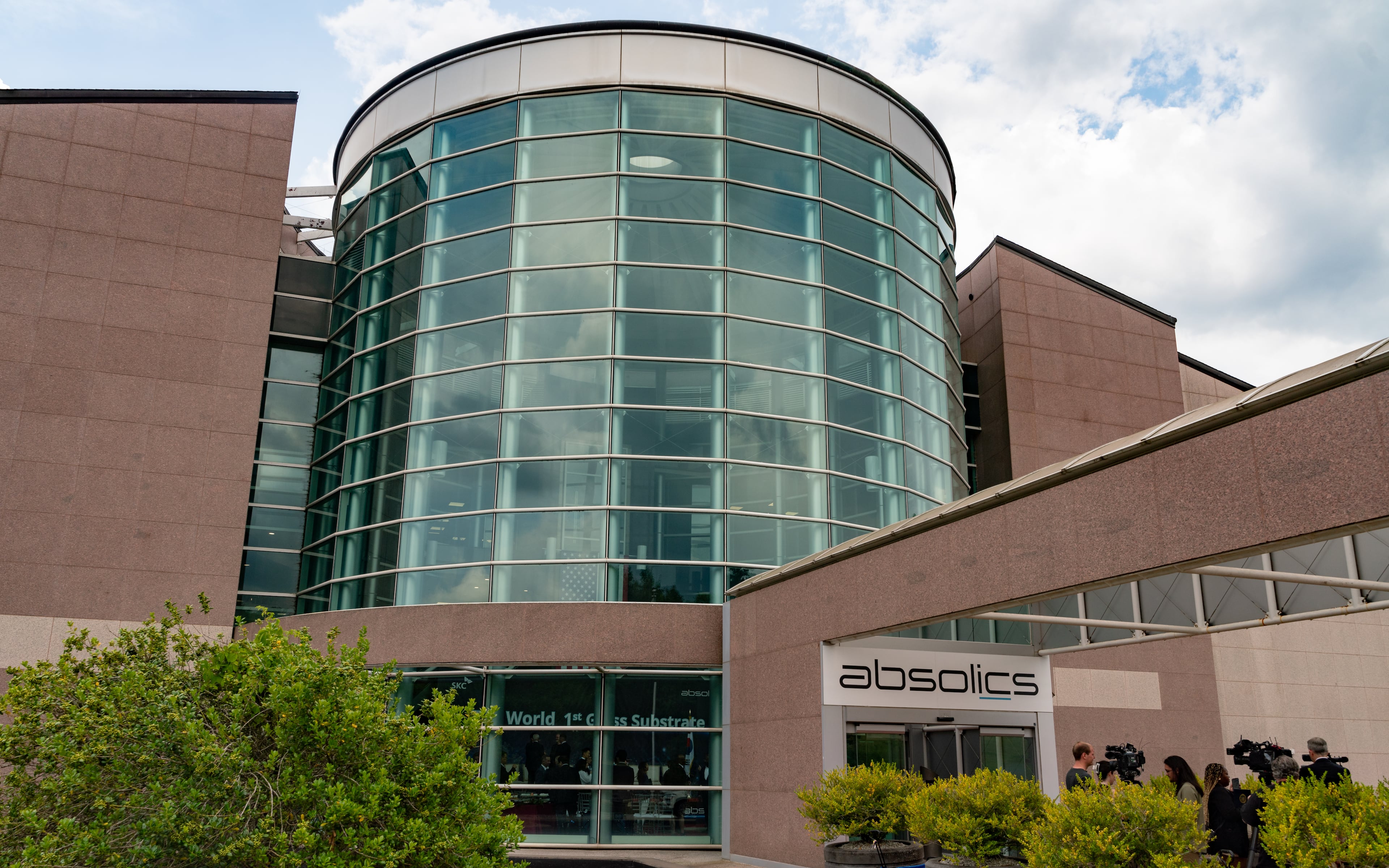Feds chip in extra $100M to help Georgia semiconductor materials plant

Months after leveraging federal funds to help build a semiconductor parts factory east of Atlanta, the Biden-Harris administration is chipping in more money to assist with the plant’s research and development efforts.
The U.S. Department of Commerce announced Thursday it awarded Absolics a $100 million grant to further the company’s development of cutting-edge materials used to package computer chips. The funds were provided under the CHIPS and Science Act, a $280 billion package President Joe Biden signed into law in 2022 to help bolster domestic technology manufacturing.
The announcement, which comes as Biden will soon exit the White House, is the latest significant federal investment or loan benefiting a Georgia factory project, following a more than $1 billion loan to solar panel maker Qcells and the pending announcement of a $6 billion loan to electric vehicle maker Rivian.
Absolics, a subsidiary of South Korean conglomerate SK Group, received $75 million through the same grant program in May to help build its 120,000-square-foot facility near SKC Drive and I-20 in Covington. The company makes a glass substrate that will be used to package computer chips together, which are used to power everything from smartphones to supercomputers.
The $175 million in federal funding for Absolics is part of a larger effort to create a domestic supply chain for computer chips. While Absolics’ products currently are shipped to Asia for final assembly, Georgia and company officials have said the new technology could eventually lead to full semiconductor production in the Peach State.

“Bolstering our advanced packaging capabilities is key to America remaining a global leader in leading-edge semiconductor manufacturing,” U.S. Secretary of Commerce Gina Raimondo said in a news release.
Computer chip manufacturing is concentrated in Asia, but it’s a massive industry that provides critical technology for everything from mobile phones to medical equipment to automobiles. U.S. Sen. Jon Ossoff, D-Ga., called this an industry that’s “crucial to our national security.”
The U.S. produces only about 10% of the world’s computer chips, but China and other Asian counties control the vast majority of production — and hold a near monopoly on manufacturing the most advanced chip technologies. That roiled the U.S. in the wake of the COVID-19 pandemic, when a worldwide chip shortage brought many industries to a standstill until Asian chipmakers restarted their assembly lines.
Further geopolitical tensions between the U.S. and China have pushed Biden’s administration to incentivize domestic semiconductor production. President-elect Donald Trump has also promised to levy new tariffs against China — alongside partner nations like Canada and Mexico — that he says will spur more domestic manufacturing, although economists say this will increase inflation of many common goods.
Absolics’ plant was announced in 2021. Gov. Brian Kemp’s spokesperson previously credited state and local policies for Absolics’ Georgia investment.

Located about 45 minutes east of Atlanta along I-20, the factory opened last fall and represents a $300 million investment by SK Group, Absolics board member and vice resident of business innovation Minjai Cho said last year. It employed about 200 workers by the end of 2024, and its primed for expansion, which Cho said could double its facility size and employee base.
The company’s technology was developed in partnership with former Georgia Tech electrical engineering professor Sung Jin Kim, who now works for SK Group. Its proprietary glass substrates will allow for more chips to be packaged onto a single device while using less energy than the current industry standard of plastic substrates. The factory’s first phase can produce up to 48,000 glass substrates each year.
In addition to the grant for Absolics, the U.S. Department of Commerce also announced $100 million CHIPS Act grants for both California-based Applied Materials and Arizona State University. The department also awarded $1.1 billion to Arizona-based Natcast, another company developing chips-packaging technology.



